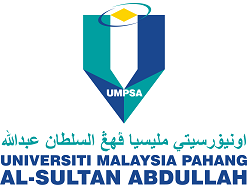Latent heat storage for hot beverages
DOI:
https://doi.org/10.15282/jmes.13.3.2019.27.0453Keywords:
Latent heat, Hot beverages, Encapsulated PCM, Food industryAbstract
Latent heat storage has shown a great potential in many engineering applications. The utilization of latent heat storage has been extended from small scales to large scales of thermal engineering applications. In food industry, latent heat has been applied in food storage. Another potential application of latent heat storage is to maintain hot beverages at a reasonable drinking temperature for longer periods. In the present work, a numerical calculation was performed to investigate the impact of utilizing encapsulated phase change material PCM on the temperature of hot beverage. The PCM was encapsulated in rings inside the cup. The results showed that the encapsulated PCM reduced the coffee temperature to an acceptable temperature in shorter time. In addition, the PCM maintained the hot beverage temperature at an acceptable drinking temperature for rational time.
References
Al-Jethelah M, Ebadi S, Venkateshwar K, Tasnim SH, Mahmud S, Dutta A. Charging nanoparticle enhanced bio-based PCM in open cell metallic foams: An experimental investigation 2019; 148: 1029–1042.
Al-Jethelah M, Tasnim SH, Mahmud S, Dutta A. Nano-PCM filled energy storage system for solar-thermal applications 2018; 126: 137–155.
Al-Jethelah M, Tasnim SH, Mahmud S, Dutta A. Melting of nano-PCM in an enclosed space: Scale analysis and heatline tracking 2018; 119: 841–859.
Al-Jethelah MSM. Thermal Energy Storage for Solar Energy Applications Based on Regular and Composite Nano-Phase Change Materials. University of Guelph, 2018.
Ebadi S, Al-Jethelah M, Tasnim SH, Mahmud S. An investigation of the melting process of RT-35 filled circular thermal energy storage system 2018; 16: 574–580.
Gin B, Farid MM. The use of PCM panels to improve storage condition of frozen food 2010; 100: 372–376.
Chen CR, Sharma A, Tyagi SK, Buddhi D. Numerical heat transfer studies of PCMs used in a box-type solar cooker 2008; 33: 1121–1129.
Sharma SD, Iwata T, Kitano H, Sagara K. Thermal performance of a solar cooker based on an evacuated tube solar collector with a PCM storage unit 2005; 78: 416–426.
Memon SA. Phase change materials integrated in building walls: A state of the art review 2014; 31: 870–906.
Al-Jethelah MS, Al-Sammarraie A, Tasnim SH, Mahmud S, Dutta A. Effect of convection heat transfer on thermal energy storage unit 2018; 16: 861–867.
Bouadila S, Fteïti M, Oueslati MM, Guizani A, Farhat A. Enhancement of latent heat storage in a rectangular cavity: solar water heater case study 2014; 78: 904–912.
Al-Sammarraie ATA, Jassem RR, Ibrahim TK. Mixed convection heat transfer in inclined tubes with constant heat flux 2013; 97: 144–158.
Ibrahim TK, Mohammed MN, Mohammed MK, Najafi G, Sidik NAC, Basrawi F, et al. Experimental study on the effect of perforations shapes on vertical heated fins performance under forced convection heat transfer 2018; 118: 832–846.
Vasu A, Hagos FY, Noor MM, Mamat R, Azmi WH, Abdullah AA, et al. Corrosion effect of phase change materials in solar thermal energy storage application 2017; 76: 19–33.
Floros MC, Narine SS. Latent heat storage using renewable saturated diesters as phase change materials 2016; 115: 924–930.
Wong RJ, Al-Jethelah M, Ebadi S, Singh A, Mahmud S. Investigation of Phase Change Materials Integrated with Fin-Tube Baseboard Convector for Space Heating 2019; 187: 241–56.
Lora D. Phase change material product design Market and business development assessment in the food industry. Instituto Superior Técnico, Universidade de Lisboa, 2014.
Valentas KJ, Rotstein E, Singh RP. Handbook of food engineering practice. CRC press 1997.
Cengel Y. Heat and mass transfer: fundamentals and applications. McGraw-Hill Higher Education; 2014.
Zhang Y, Bi J, Wang S, Cao Q, Li Y, Zhou J, et al. Functional food packaging for reducing residual liquid food: Thermo-resistant edible super-hydrophobic coating from coffee and beeswax 2019; 533: 742–749.
Su W, Darkwa J, Kokogiannakis G. Review of solid–liquid phase change materials and their encapsulation technologies 2015; 48: 373–391.
Dhaidan NS, Khodadadi JM, Al-Hattab TA, Al-Mashat SM. Experimental and numerical investigation of melting of NePCM inside an annular container under a constant heat flux including the effect of eccentricity 2013; 67: 455–468.
Dhaidan NS, Al-Jethelah MSM. study on the effect of nanoparticle dispersion on the melting of PCM in hemicylindrical cell; Orford (Québec), Canada, 2018: 2018; pp. 240–47.
Pitts DR, Sissom LE. Schaum’s outline of theory and problems of heat transfer. McGraw-Hill 1998.
Downloads
Published
Issue
Section
License
Copyright (c) 2019 The Author(s)

This work is licensed under a Creative Commons Attribution-NonCommercial 4.0 International License.






